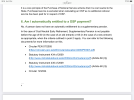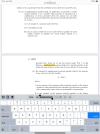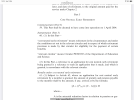Setforlife
Registered User
- Messages
- 169
That’s great news, have been following with interest some of the information here as there appears to be a concerted effort to keep details of right s in these areas away from workers. I’ve found a lot of conflicting information and no clear way to actually find out an individuals right.
My spouse is in teaching and post 95, pre 2004 so early enough to be entitled to the 55/35 rule, so she can retire at 55 with full pension (at whatever years she has completed then). however she is supplementary pension also and some advice variously claims she won’t get that part until 60, or 65, or 66. It appears to be advisors getting the 55/35 mixed up with other types of retirement. However it appears impossible to get cast iron proof of what her entitlements are. Has anyone any way to find that out? It’s 10+ years out for us, but we are starting to plan around it now.
My spouse is in teaching and post 95, pre 2004 so early enough to be entitled to the 55/35 rule, so she can retire at 55 with full pension (at whatever years she has completed then). however she is supplementary pension also and some advice variously claims she won’t get that part until 60, or 65, or 66. It appears to be advisors getting the 55/35 mixed up with other types of retirement. However it appears impossible to get cast iron proof of what her entitlements are. Has anyone any way to find that out? It’s 10+ years out for us, but we are starting to plan around it now.





